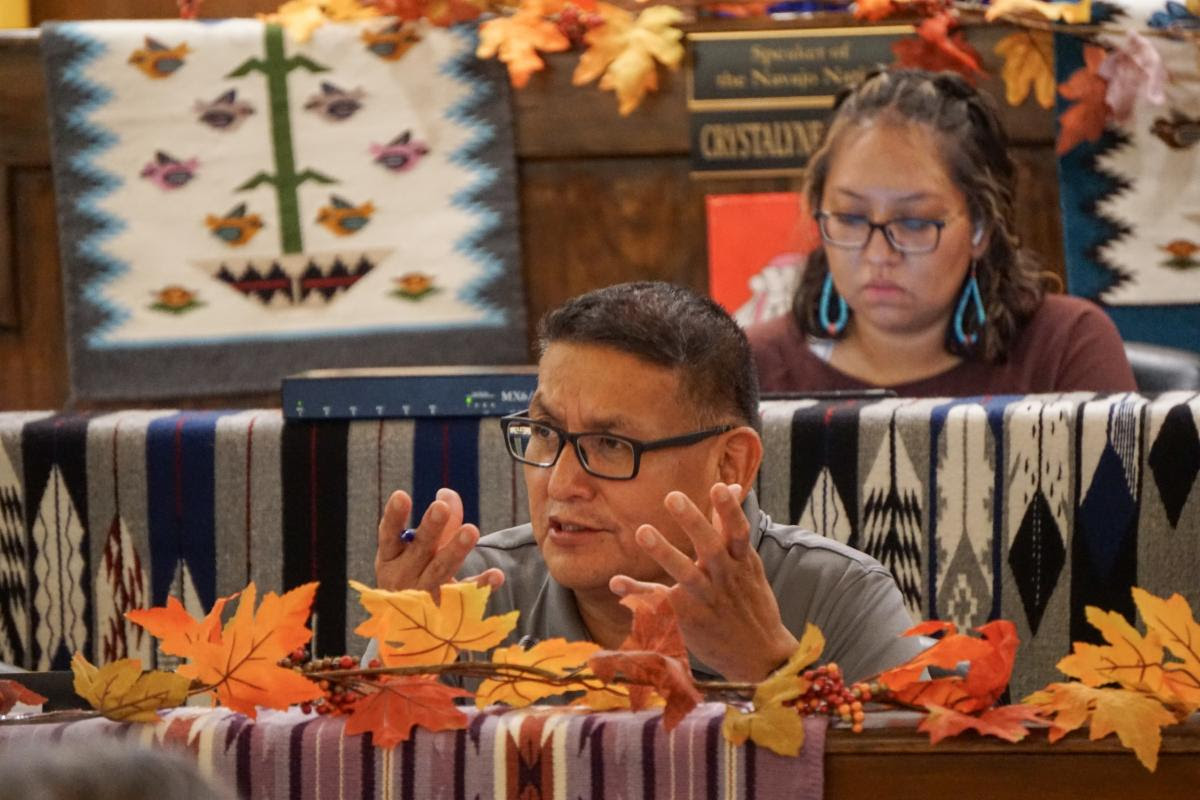
- Details
- By Native News Online Staff
The 25th Navajo Nation Council has approved Legislation 0135-24, allocating approximately $148 million from the Síhasin Fund to enhance senior centers throughout the Navajo Nation. This landmark legislation aims to improve elder care by renovating existing facilities, ensuring compliance with ADA standards, and building new centers to better serve Navajo elders.
Spearheaded by Delegate Danny Simpson and co-sponsored by Council Delegates Amber Kanazbah Crotty, Crystalyne Curley, Norman M. Begay, Casey Allen Johnson, Carl R. Slater, and Lester C. Yazzie, the legislation underscores a commitment to dignified and accessible elder services.
This legislation is not just about renovating buildings; it’s about respecting our elders and ensuring they have safe, welcoming spaces to receive services and engage with their communities,” said Delegate Simpson. “It represents a comprehensive commitment to improve the quality of life for our elders, addressing both immediate needs and long-term infrastructure goals.”
During the session, two significant amendments were introduced. The first revised the project scope to include a detailed breakdown of anticipated costs and upgrades for each senior center, promoting transparency and equitable fund distribution. The second amendment allowed any unspent funds to remain accessible until FY 2027, ensuring flexibility for project completion and potential delays.
Delegate Amber Kanazbah Crotty highlighted the importance of these amendments: “This funding is more than just financial; it’s an investment in recognizing our elders’ contributions while ensuring their safety and dignity. Our centers must foster community, health, and wellness.”
The funding will focus on upgrades at over 85 senior centers, emphasizing ADA-compliant restrooms, improved kitchen facilities, enhanced HVAC systems, and creating safer, more accessible environments. Initial renovations will start at the Crownpoint Senior Center, which will receive $450,000 for ADA-compliant restroom upgrades.
“This initiative is a testament to our dedication to improving the well-being of Navajo elders,” said Delegate Simpson. “Our work now is to ensure that this funding is used effectively, bringing meaningful change to our communities.”
The Division of Community Development (DCD) will work with the Division of Aging and Long-Term Care Support (DALTCS) to oversee project implementation. The Council has mandated regular progress reports to ensure accountability and effective fund usage, with plans to hire additional project managers and consultants to expedite renovations.
Funds will be available immediately, allowing for rapid initiation of renovation plans. The Council has also called for ongoing professional assessments to guarantee precise implementation, resource allocation, and timely project completion.
More Stories Like This
Native News Weekly (August 25, 2024): D.C. BriefsUS Presidents in Their Own Words Concerning American Indians
Federal Judge Orders ICE to Halt Use of Pepper Spray, Arrests of Peaceful Protesters in Twin Cities
Tunica-Biloxi Cultural Leader John D. Barbry Walks On
Next on Native Bidaské: Federal ICE Activity in Minneapolis: Ruth Buffalo’s Perspective
Help us defend tribal sovereignty.
At Native News Online, our mission is rooted in telling the stories that strengthen sovereignty and uplift Indigenous voices — not just at year’s end, but every single day.
Because of your generosity last year, we were able to keep our reporters on the ground in tribal communities, at national gatherings and in the halls of Congress — covering the issues that matter most to Indian Country: sovereignty, culture, education, health and economic opportunity.
That support sustained us through a tough year in 2025. Now, as we look to the year ahead, we need your help right now to ensure warrior journalism remains strong — reporting that defends tribal sovereignty, amplifies Native truth, and holds power accountable.
 The stakes couldn't be higher. Your support keeps Native voices heard, Native stories told and Native sovereignty defended.
The stakes couldn't be higher. Your support keeps Native voices heard, Native stories told and Native sovereignty defended.
Stand with Warrior Journalism today.
Levi Rickert (Potawatomi), Editor & Publisher


